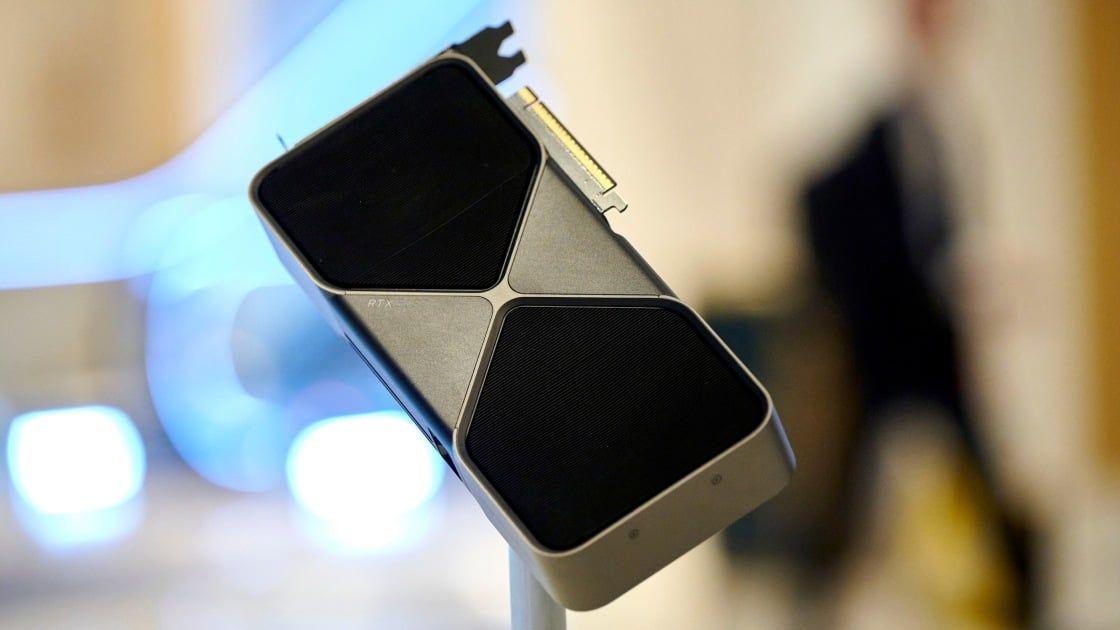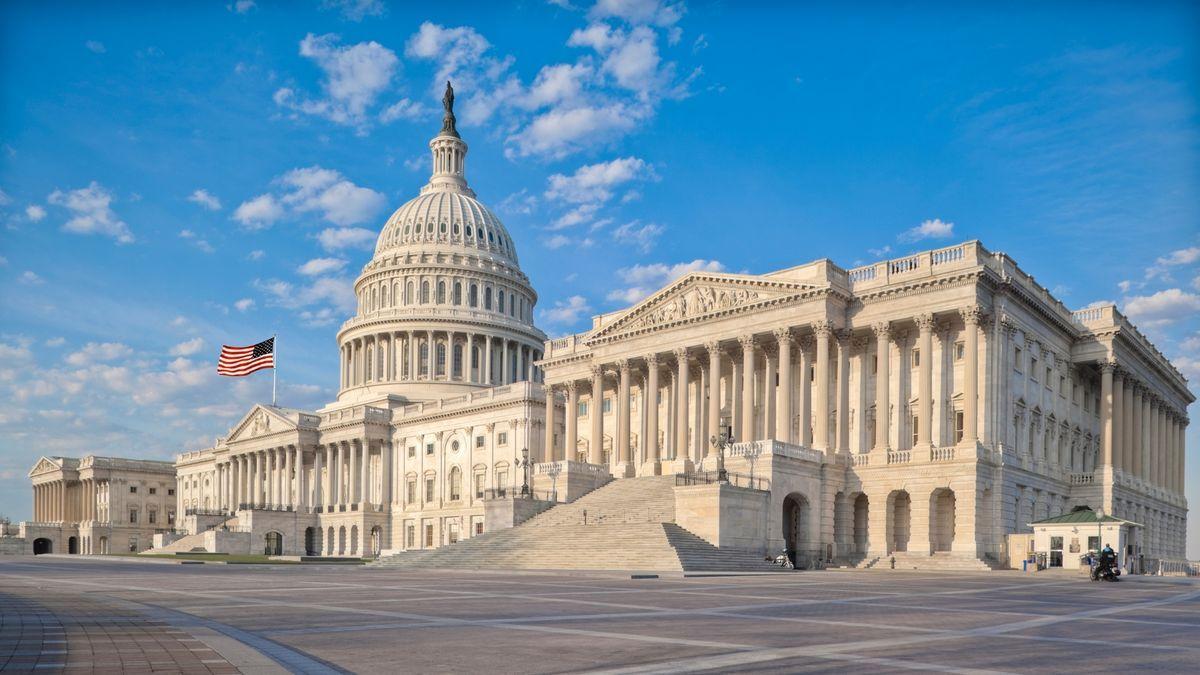US AI Export Controls Spark Controversy: Nvidia Criticizes Biden Administration's "AI Diffusion" Policy
3 Sources
3 Sources
[1]
US AI Diffusion Policy may harm Nvidia's sales -- most of the chipmaker's AI GPUs are affected
Under the proposed export rules of the outgoing U.S. government, American companies will be restricted from supplying AI GPUs to most countries on the planet. As the AI hardware market leader, Nvidia will suffer more than anyone, as it will have difficulty selling virtually all its GPUs to most countries worldwide. The U.S. Government announced the proposed internal final rule concerning sales of American AI chips on January 15, 2025. The regulations aim to tighten oversight of AI diffusion and prevent unauthorized use of cutting-edge technologies by adversaries like China and Russia. Virtually all Nvidia GPUs will fall under the new rules, including DGX, HGX, and MGX systems, as well as A100, A800, H100, H200, H800, B100, B200, GB200, L4, L40S, and RTX 6000 Ada GPUs, according to a Form 8K report filed by Nvidia. The list does not include Blackwell GPUs for gamers, but it noted that the licensing requirement will consist of future Nvidia ICs, boards, or systems. The IFR includes a 120-day notice and public comment period ending May 15, 2025. If the rule remains unchanged or is not withdrawn by the incoming Trump Administration, the new U.S. export rules will take effect on May 15, 2025. Nvidia does not explicitly say that the new regulations will hurt its sales. Still, the filing implies that the company warns investors about the potential impact of the incoming rules if enacted. The proposed regulation divides countries into three tiers based on trust and risk levels. Tier 1 includes the U.S. and 18 close allies like Australia, Canada, Japan, Taiwan, the U.K., and much of Western Europe, which face minimal restrictions on AI exports. Tier 3 encompasses countries of concern, such as Belarus, China, Russia, and others under U.S. arms embargoes, which are effectively barred from receiving advanced U.S. AI GPUs. Tier 2 includes intermediate nations like the Baltic States, Israel, Poland, Saudi Arabia, and the United Arab Emirates, which face restrictions. Saudi Arabia and the UAE invest billions in AI data centers and hardware so that these restrictions will hurt both countries and Nvidia's sales to entities in the Middle East. In Tier 2 countries, entities can import up to 1,700 Nvidia H100 GPUs (or equivalent) without a license, and these do not count toward national AI chip limits. These exemptions primarily cover smaller-scale purchases by universities, research institutions, and medical organizations for non-sensitive uses. It remains to be seen how this exception of the rules affects sales of Nvidia gaming GPUs. On the one hand, distributors tend to procure many high-end graphics cards to sell to their clients. Then major retailers indeed sell thousands of high-end graphics boards. However, no final customer has bought 1,700 graphics boards. Large organizations in Tier 2 seeking significant quantities of GPUs must qualify as National Validated End Users (NVEUs). With NVEU status, they can acquire up to 320,000 H100 GPUs (or equivalent) by 2027 by meeting strict security requirements. Non-validated entities in Tier 2 can purchase up to 50,000 GPUs per country, which can increase to 100,000 through government agreements with the U.S. For major AI developers working on complex models, even the 320,000-unit limit may be insufficient. These entities must apply for export licenses for additional GPUs. This process could cause delays, which is a pessimistic scenario for these companies but probably good news for U.S.-based Google, Microsoft, and OpenAI as they will have fewer real rivals from Tier 2 countries. For Nvidia, which currently sells everything it makes, the limitations may not immediately negatively affect its sales. However, as the market of AI hardware develops and processing capability requirements increase, the licensing requirements will probably impact its sales.
[2]
NVIDIA responds to new US government restrictions on artificial intelligence
TL;DR: The US Department of Commerce has imposed strict restrictions on the international sale of advanced GPUs used for AI, aiming to create a secure technological ecosystem and mitigate national security risks. Global NVIDIA exports are the latest casualty of the international AI arms race, with the US Department of Commerce announcing heavy restrictions on the international sale of advanced computer chips, specifically GPUs, used for artificial intelligence. As detailed by Semafor, the move aims to build a "trusted technological ecosystem around the world" and "protect against the national security risks associated with AI". The proposed framework would affect nations worldwide, with certain allied countries and partners exempt from the controls. The details of the regulations, as reported by WSWS, include a 3-tier system. The first tier, compromising US allies including Australia, New Zealand, South Korea, and Taiwan - would receive no restrictions. The second tier, consisting of approximately 120 countries, will have limits set on the number of AI chips they are able to receive through a license approval system. The third tier, and the main aim of the regulations - would include total bans on exports from China, Iran, Russia, and North Korea. NVIDIA expressed its opposition to these measures in a blog post on Monday, where Vice President of Government Affairs Ned Finkle condemned the moves as "unprecedented and misguided." While also warning of the potential harm to US innovation and global competitiveness. Understandably, this move seeks to threaten much of NVIDIA's global business model, however, gamers and hardware enthusiasts can rest assured - as gaming GPUs are among the proposed restriction's exceptions.
[3]
NVIDIA blasts Biden Administration for being misguided when it comes to AI
TL;DR: The Biden Administration's "AI Diffusion" rule restricts AI hardware and algorithm exports, requiring special licenses for certain countries, excluding trusted ones like the UK and Canada. NVIDIA criticizes the rule, claiming it threatens innovation and economic growth, arguing it won't enhance U.S. security but will weaken global competitiveness. The outgoing Biden Administration's "AI Diffusion" rule essentially tightens controls on all AI hardware and algorithm/model exports, dictating which countries are allowed full access to AI silicon from American companies. In contrast, those not on the 'nice' list must apply for a special license to obtain more than 1,700 AI chips - including access to the most powerful AI models created by US tech companies. The complete list of trusted countries is as follows: UK, Canada, Australia, Japan, France, Germany, Belgium, Denmark, Finland, Ireland, Italy, the Netherlands, New Zealand, Norway, the Republic of Korea, Spain, Sweden, and Taiwan. Everyone else, including China, must abide by the new "AI Diffusion rule" set to be enforced by the Commerce Department's Bureau of Industry and Security. As one of the leaders in AI hardware and software across all industries, NVIDIA is unhappy with the new rule, stating that the "AI Diffusion" rule "threatens to derail innovation and economic growth worldwide." The company released a statement earlier this week, penned by its vice president of government affairs, Ned Finkle. The statement opens by praising the first Trump Administration for laying the foundation for AI's success and growth and "fostering an environment where U.S. industry could compete and win on merit without compromising national security." "Today, companies, startups, and universities around the world are tapping mainstream AI to advance healthcare, agriculture, manufacturing, education and countless other fields, driving economic growth and unlocking the potential of nations," the statement reads. "Built on American technology, the adoption of AI around the world fuels growth and opportunity for industries at home and abroad." NVIDIA goes on to call the new rules a "200+ page regulatory morass," blasting the Biden Administration for drafting them in secret without proper review. It's a fascinating read, and the takeaway is that NVIDIA believes the new rules won't enhance U.S. security. "The new rules would control technology worldwide, including technology that is already widely available in mainstream gaming PCs and consumer hardware," it continues. "Rather than mitigate any threat, the new Biden rules would only weaken America's global competitiveness, undermining the innovation that has kept the U.S. ahead." The statement closes with a call to the Trump Administration to "bolster our economy and preserve our competitive edge in AI and beyond."
Share
Share
Copy Link
The Biden Administration's new AI export control policy, set to take effect in May 2025, aims to restrict the sale of advanced AI chips globally. Nvidia, a major player in the AI hardware market, strongly opposes the measure, citing potential harm to innovation and US competitiveness.

Biden Administration Unveils Controversial AI Export Controls
The outgoing Biden Administration has announced a new "AI Diffusion" policy aimed at tightening controls on AI hardware and algorithm exports. Set to take effect on May 15, 2025, the policy has sparked significant controversy, particularly from industry leader Nvidia
1
2
.Policy Overview and Tiered System
The proposed regulations introduce a three-tier system for AI chip exports:
- Tier 1: Includes the US and 18 close allies such as the UK, Canada, and Australia, facing minimal restrictions.
- Tier 2: Comprises about 120 countries with limited access through a license approval system.
- Tier 3: Includes countries like China, Russia, and North Korea, facing total export bans
2
3
.
Impact on Nvidia and the AI Industry
Nvidia, a leading AI hardware manufacturer, will be significantly affected by these regulations. The company warns that virtually all its GPUs will fall under the new rules, including high-performance models like the A100, H100, and H200
1
.Key points of the policy include:
- Tier 2 countries can import up to 1,700 Nvidia H100 GPUs (or equivalent) without a license.
- Large organizations in Tier 2 countries can acquire up to 320,000 H100 GPUs by 2027 with National Validated End User (NVEU) status.
- Non-validated entities in Tier 2 countries are limited to 50,000-100,000 GPUs per country
1
.
Nvidia's Response and Criticism
Nvidia has strongly criticized the Biden Administration's approach, calling it "unprecedented and misguided"
2
. The company argues that the new rules threaten to:- Derail innovation and economic growth worldwide.
- Weaken America's global competitiveness.
- Undermine the innovation that has kept the US ahead in AI technology
3
.
Ned Finkle, Nvidia's Vice President of Government Affairs, stated that the regulations would control technology that is already widely available in mainstream gaming PCs and consumer hardware
3
.Related Stories
Potential Consequences and Industry Concerns
The AI industry and related sectors are concerned about several potential consequences:
- Delays in AI development for Tier 2 countries due to licensing requirements.
- Possible advantages for US-based companies like Google, Microsoft, and OpenAI over international competitors.
- Impact on countries investing heavily in AI infrastructure, such as Saudi Arabia and the UAE
1
.
Looking Ahead
As the policy enters a 120-day notice and public comment period, the incoming Trump Administration may have the opportunity to revise or withdraw the rules
1
. The AI industry, led by companies like Nvidia, is likely to continue lobbying against these restrictions, emphasizing the need for a balance between national security concerns and maintaining US technological leadership in the global AI race.References
Summarized by
Navi
[1]
Related Stories
US Lawmakers Propose 'GAIN AI Act' to Prioritize American Access to Advanced AI GPUs
04 Sept 2025•Policy and Regulation

Tech Giants and Foreign Leaders Challenge Trump Administration's AI Chip Export Controls
26 Mar 2025•Policy and Regulation

US-China Chip War Intensifies: Nvidia Caught in the Crossfire
10 Oct 2025•Policy and Regulation

Recent Highlights
1
ByteDance Faces Hollywood Backlash After Seedance 2.0 Creates Unauthorized Celebrity Deepfakes
Technology

2
Microsoft AI chief predicts artificial intelligence will automate most white-collar jobs in 18 months
Business and Economy

3
Google reports state-sponsored hackers exploit Gemini AI across all stages of cyberattacks
Technology





